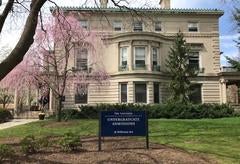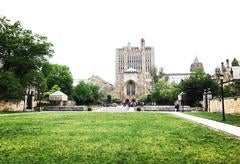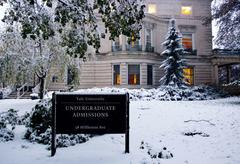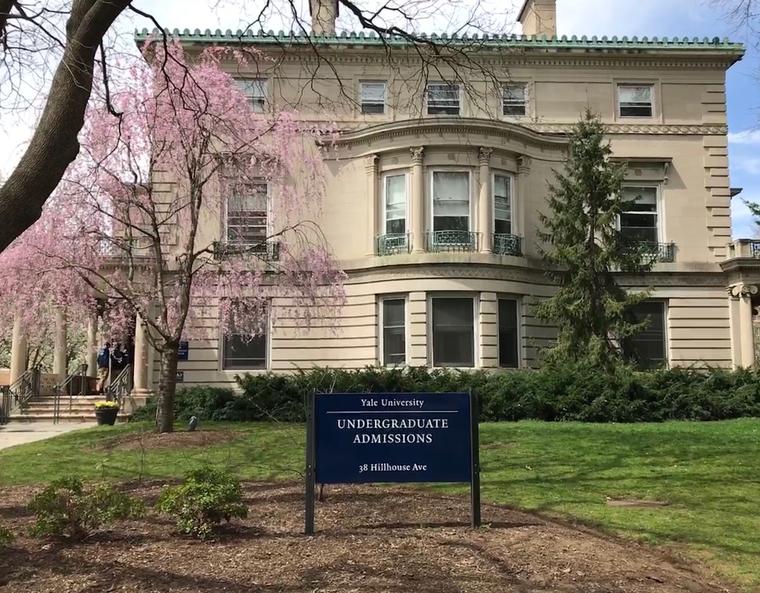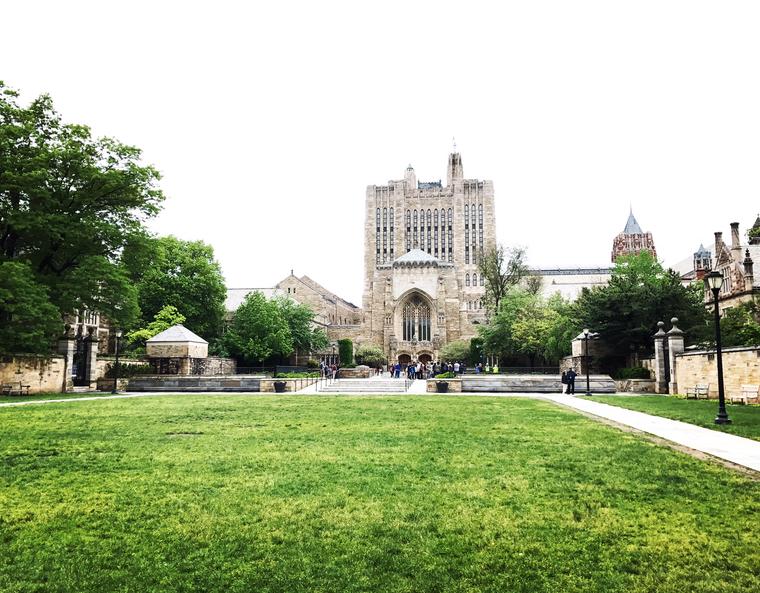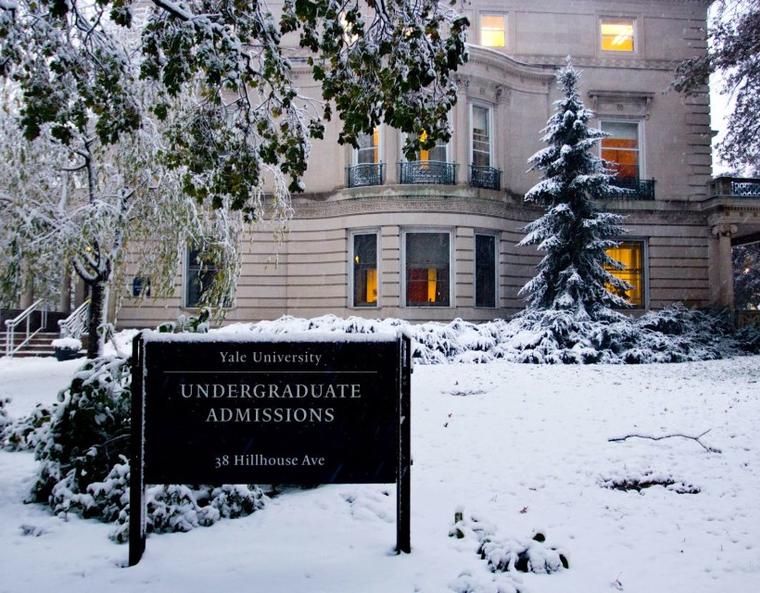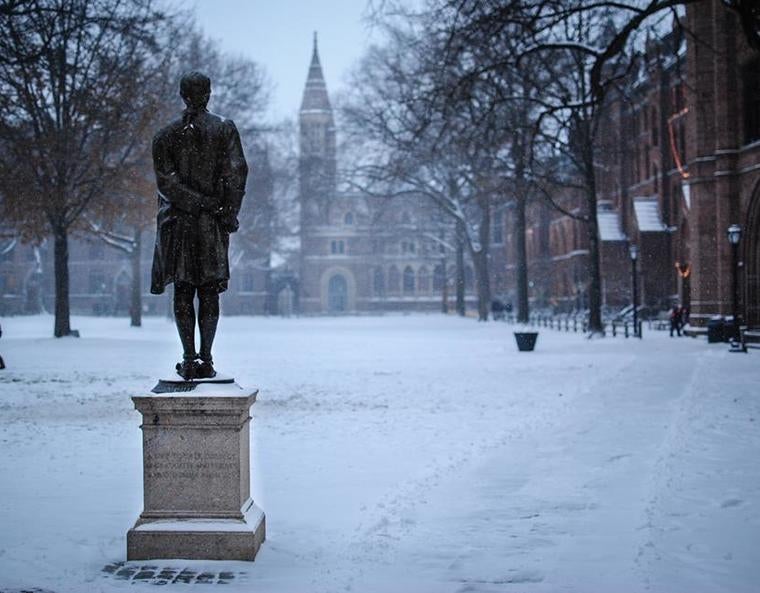
11:59 p.m. on application deadline day. There you sit, cursor hovering over that submit button. Activities listed with care, supplements meticulously filled out, essays written and revised and rewritten. Hopefully you’ve turned what many would describe as a stress-filled and anxiety-inducing process into an opportunity to reflect on the past few years of your life and think carefully about where you’d like to spend the next four. With a click of the mouse, days, weeks, or maybe months of hard work is launched off into cyberspace only to land on the desk of some stranger you’ve probably never met.
Yale’s Regular Decision application deadline for the Class of 2021 has come and gone. There’s a good chance you submitted your application around January 1st (or maybe earlier, you eager beaver you!) but you won’t hear from us again until March 30th. So what’s happening to that application of yours over the next three months?
Through the magic of student records and application IDs, all the information about you we’ve ever received – the test scores you’ve shared, your application, that supplementary recommendation letter from your middle school music teacher we politely asked you not to send us – is loaded into our database. At Yale, we sort our application reading loads geographically, so your name will sit in a queue along with others from your city, state, or country. We do this not just as a practical means of sorting our many thousands of applications, but also so for every corner of the world there’s someone in our office familiar with the schools and the unique challenges and opportunities our applicants from that place may encounter. Personally, I’ll spend the next few months sorting through applicants from Central America, the Caribbean, parts of Europe, and parts of California.
That serves as the basis for our holistic admissions process. Believe it or not, “holistic” is not just a meaningless buzzword that admissions offices around the country throw out at information sessions. It is really and truly the best word I can use to describe how your application is reviewed after you hit that submit button. It means that a glance at your grades and test scores will not lead to any sort of admissions decision – if it did, boy oh boy would my job be easy/nonexistent. It means that we read every application cover to cover in order to understand the background, context, accomplishments, potential, interests, and character of each of our applicants.
In fact, over the next several weeks, my colleagues and I will focus much of our time on reading applications in preparation for the committee process. Some of us may do it sitting in our offices at 38 Hillhouse Avenue, others may read in the comfort of their homes. We’ll wake up early, we’ll stay up late, we’ll let our inboxes overflow with neglected emails so that we can get our 30,000+ applications thoroughly read. We laugh out loud at the corny jokes in your essays. We take arduous notes. We drink lots of coffee. People often ask me about the high reading volume my job demands: is it fun? Boring? Fascinating? Difficult? Strenuous? Truthfully, it’s often a combination of all of the above.
It’s likely that more than one person will read your application in full before it even reaches the committee room. The time we spend reading each application varies depending on a number of different factors. Most applicants to Yale are a pretty good match for us academically, and beyond that have put together a strong and thorough application. Some have not. Frankly, if you didn’t put a lot of time and effort into writing your application, we’re probably not going to put a lot of time and effort into reading it. But for most of our applicants, we aim to respect the hard work you’ve put into applying to college by giving your application the time and attention it deserves.
It doesn’t end with the reading. We run admissions committees throughout February and March, each one made up of a combination of senior admissions officers, professors, and Residential College Deans. Every applicant is seen by at least one admissions committee, and the committees discuss and vote on the strongest candidates. It’s not as scary as it sounds; in fact, it’s a pretty friendly and human process. We talk about what you’ve managed to accomplish in your high school and how you might fit into Yale’s academic and residential communities; we squint to decipher your transcript; we laugh at your corny jokes again.
I could go on and on. Your application goes on quite a journey between January 1st and March 30th. From reader to reader, committee to committee, it bounces around our office until we’re ready to render a final decision. It is an incredibly deliberate and thoughtful process, one that we’re careful not to rush or take for granted.
So that’s what we’re up to for the next few months. Hopefully what you’re up to is forgetting about Yale and other colleges for a while and focusing on making the most of the final semester of senior year. You should not be writing to us, calling us, or updating us weekly on your life. We asked for very specific information in the application, and you provided it. If we have questions or if anything is missing, we’ll contact you or your school counselor. The students who are ultimately admitted to Yale have incredibly varied backgrounds, accomplishments, and interests, but in my experience they all share one thing: they have made the most of their high school career in their own unique way. So the best way a Yale applicant can spend his or her senior year is to continue to do just that. Your hard work for the college process is done; it’s our turn now.
